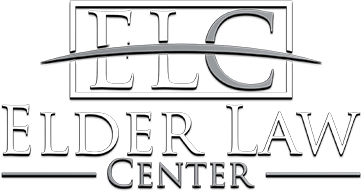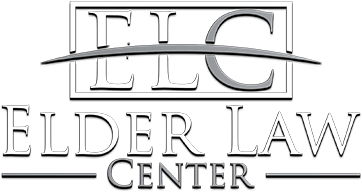
Estate Planning
Riverside Estate Planning Attorneys
Personalized Estate Planning Guidance in Riverside and the Surrounding Counties
Do you have a plan for what will happen when you pass away? What about if you become incapacitated? In either scenario, what will become of your assets and loved ones? Estate planning can help you confidently answer these questions and provide invaluable peace of mind.
Since 1982, our Riverside estate planning lawyers have helped families prepare for the future and protect what is most important to them. Our team at Elder Law Center, P.C. can help you create an estate plan from scratch or build on and update existing documents. We are familiar with many types of sophisticated tools and can tailor each document to suit your unique needs. Our firm is proud to maintain ongoing relationships with many of our clients, and we are ready to serve as your trusted estate planning partner now and in the years to come.
Call (951) 474-0708 or contact us online to schedule a free initial consultation. Flexible payment plans are available.
Types of Estate Planning Documents
Your specific goals and concerns will shape your estate plan. Some situations may call for only a few documents, while others may warrant more complex tools.
No matter your circumstances, take the time to solidify your estate plan as soon as you can. You can never predict the challenges life will throw at you, and the last thing you want is to miss your chance to protect yourself and your loved ones.
Our Riverside estate planning attorneys can assist you with:
- Revocable Living Trusts. These trusts are modifiable and take over the asset distribution functions typically handled by your will. A living trust’s purpose is to avoid probate, saving your family time, money, and hardship. You can serve as your own trustee while you are alive and appoint a successor trustee to take over once you are gone or incapacitated.
- Irrevocable Grantor Trusts. Irrevocable trusts are not modifiable but can be used to achieve asset protection and avoid estate taxes. These trusts must be designed and implemented strategically. An irrevocable trust can also be used to protect your home from a Medi-Cal claim after you are gone while still preserving your beneficiaries’ capital gains tax relief.
- Separate Property Trusts. If you are looking to leave an inheritance to a married beneficiary, a separate property trust can prevent the funds and/or assets from “commingling” and becoming community property. Community property is subject to division in a California divorce, while separate property – including inheritances – is not divided. A separate property trust is specifically designed to maintain the “separate property” status.
- Special Needs Trusts. These trusts become necessary if someone is receiving need-based public benefits but later come into money. Need-based public benefit programs require recipients to maintain very strict asset and income limits, and even temporarily exceeding these limits can result in disqualification from a program. Special needs trusts can be used to safely hold inheritances, personal injury damage awards, and any other funds or assets someone needs to comfortably live their lives.
Types of Documents
- Your Last Will and Testament. It is almost always in your best interest to rely on a trust to minimize probate and expedite asset distribution, but your will can also be a useful document. You can name a guardian to look after any minor children and a personal representative to oversee probate. You can also use your will to “catch” and redirect any assets that were not placed in your trust at the time of your passing.
- Asset Protection. Creditors may try and come after your assets while you are still alive or after you pass away, especially if you received Medi-Cal benefits or accumulated significant medical bills. Assets placed in certain types of irrevocable trusts cannot be easily accessed by creditors, allowing you to preserve planned inheritances.
- Durable Powers of Attorney. Who would pay your bills and manage other financial affairs if you were hospitalized? By granting an agent “durable powers of attorney,” you give them legal permission to act on your behalf, even if you become unable to communicate. Agents have a fiduciary duty to act in your best interest, and you can define the scope of their powers.
- Advanced Health Care Directives. These forms allow you to define preferences for the types of medical treatments you wish to receive or not receive in the event you become incapacitated. Your medical provider is legally obligated to honor these enforceable requests.
- HIPPA Medical Compliance Documents. Under HIPPA rules, medical providers are not legally able to release private medical information to third parties without the patient’s permission. HIPPA medical compliance documents allow you to authorize your doctor to give your medical information to certain people – such as your immediate relatives or durable power of attorney – when you become unable to give permission directly.
- Trust and Estate Administration. Trusts do not run themselves: They require care and maintenance from a (hopefully) seasoned fiduciary. Similarly, probate does not resolve itself: A personal representative will need to settle an estate’s many affairs. You may be tempted to appoint a friend or family to run your trust or manage probate, but doing so can result in unexpected consequences, especially if they are unable to manage each position’s financial responsibilities. Our team at Elder Law Center, P.C. are experienced trust and estate administrators and are happy to fill these important roles. We are also aggressive litigators who can work to quickly resolve any disputes that arise.
Updating Your Estate Plan
Your estate plan should always reflect your current wishes, which tend to change as you grow older. People enter and leave your life, financial circumstances evolve, and new considerations arise.
Make it a point to look over and update your estate plan every few years. You may not realize how much you wish to change until you take the time to review the details.
You should consider immediately updating your estate plan if:
- You get married or divorced
- You have a child or grandchild
- You move to a new state
- You are affected by new estate planning laws
- Your financial situation significantly changes
- Your relationship to a beneficiary, personal representative, trustee, or durable power of attorney agent changes
Our Riverside estate planning lawyers are committed to helping you stay on top of your estate plan. We have dealt with all sorts of issues over the years and are prepared to put our knowledge and skill to work for you.
If you have questions about estate planning or are ready to start building your plan, do not wait to call (951) 474-0708 or contact us online.




